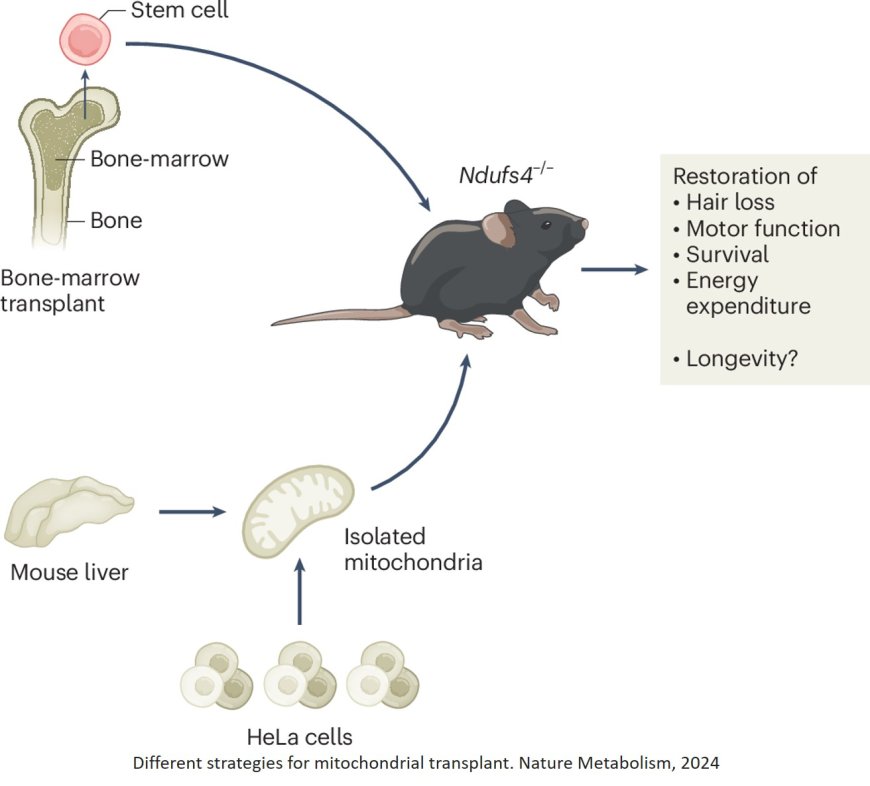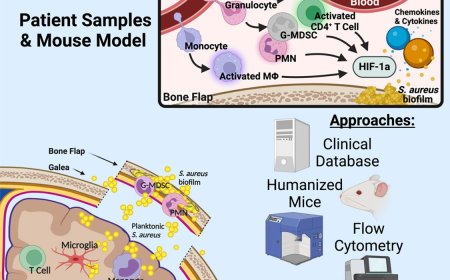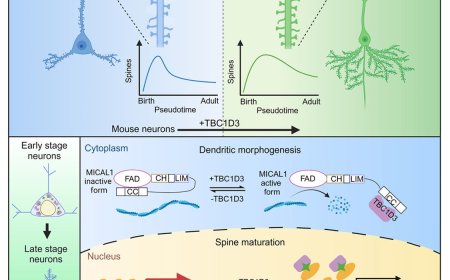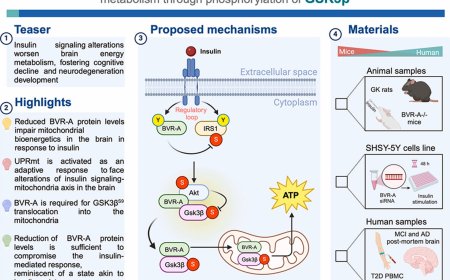Mitochondria transfer therapy for Leigh syndrome

Leigh syndrome is a paediatric mitochondrial disease that is characterized by failure to thrive, lactic acidosis, and progressive degeneration.
A new approach to treating mitochondrial disorders is based on the transplantation of healthy mitochondria, and improves symptoms and survival in a mouse model of Leigh syndrome.
The researchers transplanted haematopoietic stem cells from mouse bone marrow, or exogenous mitochondria from mouse liver or human HeLa cells, into the Ndufs4−/− mouse model of human Leigh syndrome.
These interventions improve symptoms of disease — from hair loss and motor function to survival — and increase energy expenditure in the recipient mice. The authors suggest that this intervention might also target normative ageing.
https://www.nature.com/articles/s42255-024-01125-5













